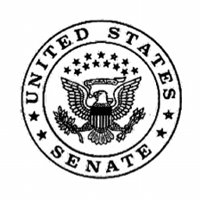Senate torture report released; CIA lawyers mulled how to improve acceptance of harsh techniques

Updated: The U.S. Senate Intelligence Committee has released a critical report on CIA interrogations on terrorism suspects that were so harsh that some of its officers began questioning their legality.
The report says some CIA prisoners were subjected to unapproved “rectal feeding” or “rectal hydration” in an effort to exert total control over detainees, while some waterboarding was described as “a series of near drownings” by a medical officer, report the New York Times and the Washington Post.
The 499-page executive summary of the committee study just released covers the time period from late 2001 to early 2009. Sen. Dianne Feinstein (D-Calif.), chairman of the committee, says that the full study is more than 6,700 pages, but has yet to be unclassified.
Claims that the harsh methods produced valuable intelligence were exaggerated or false, the report concluded.
“As the study describes, prior to the attacks of September 2001, the CIA itself determined from its own experience with coercive interrogations, that such techniques ‘do not produce intellegence,’ ‘will probably result in false answers,’ and had historically proven to be ineffective,” wrote Sen. Feinstein in a cover letter to the report. “Yet these conclusions were ignored.”
Even before the United States captured a single detainee, CIA lawyers were considering how to gain public support for harsh interrogation methods, according to a memo quoted in the report.
The Times notes the previously undisclosed November 2001 draft memo titled “Hostile Interrogations: Legal Considerations for CIA Officers.” In the memo, lawyers in the CIA’s Office of Legal Counsel argued that “states may be very unwilling to call the U.S. to task for torture when it resulted in saving thousands of lives.”
According to the draft memo, the “CIA could argue that the torture was necessary to prevent imminent, significant, physical harm to persons, where there is no other available means to prevent the harm.” (See page 48 of the report.)
The necessity defense was also mentioned in a memo by Jay Bybee, then the leader of the Justice Department’s Office of Legal Counsel, the National Law Journal (sub. req.) reports. In an August 2002 memo to Alberto Gonzales, who was at the time counsel to the president, Bybee wrote that “under the current circumstances, necessity or self-defense may justify interrogation methods that might violate” prohibitions against torture. Bybee is currently a federal appeals court judge.
Bybee’s memo referenced CIA information that questioning of detainees had led to the capture of Jose Padilla, accused in a dirty bomb plot. The information was wrong, however, according to the report. “Much of the information provided by the CIA to the [Office of Legal Counsel] was unsupported by CIA records,” the report said.
Jose Rodriguez Jr., who led the CIA’s Counterterrorism Center, scolded those who questioned the legality of some techniques, the report said. “Strongly urge that any speculative language as to the legality of given activities or, more precisely, judgment calls as to their legality vis-à-vis operational guidelines for this activity agreed upon and vetted at the most senior levels of the agency, be refrained from in written traffic (email or cable traffic),” Rodriguez wrote. “Such language is not helpful.”
Rodriguez told the Post he never instructed employees not to send cables about the legality of interrogations.
The report was produced primarily by Democratic staffers, the Post notes. A CIA statement says the report has “too many flaws for it to stand as the official record of the program.”
Updated at 11:51 a.m. to add links to the executive summary and more quotes from its content. Updated on Dec. 10 to include information from the National law Journal.



